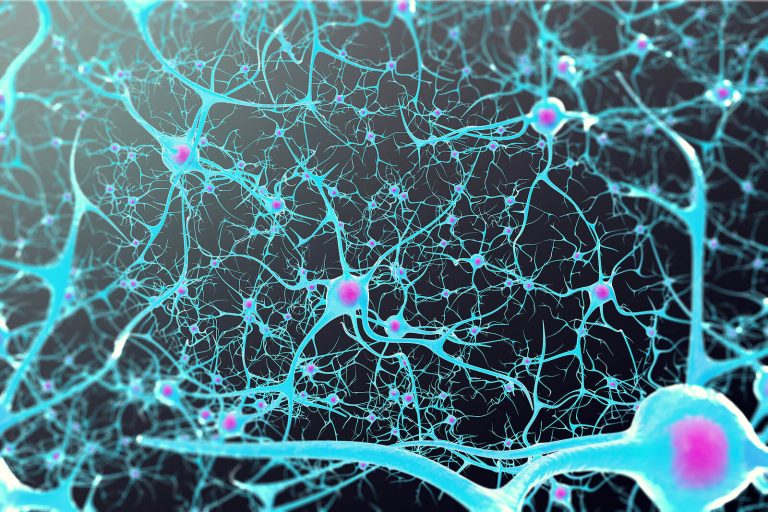Mental Health and Maternity

Mental Health is Important!
Pregnancy is a time of change affecting almost every aspect of a person’s life. Hormones are higher during pregnancy. Both the mind and body undergo adjustments to accommodate growing life. These developments, although exciting, may open the door for possible new mental health concerns. It is very important to have the ability to recognize the signs of potential issues and understand that they are treatable!
Perinatal Depression:
 One of the more common mental health themes during pregnancy is perinatal depression. This refers to the period of time encompassing when a person becomes pregnant up until about one year after birth. Typically, if depression and pregnancy are spoken about together, postpartum depression is either assumed or outright said. In reality, depression can be a struggle at any time during or after pregnancy. Symptoms include:
One of the more common mental health themes during pregnancy is perinatal depression. This refers to the period of time encompassing when a person becomes pregnant up until about one year after birth. Typically, if depression and pregnancy are spoken about together, postpartum depression is either assumed or outright said. In reality, depression can be a struggle at any time during or after pregnancy. Symptoms include:
- Persistent low mood
- Feelings of hopelessness and/or guilt
- Loss of interest in formerly enjoyable activities
- Extensive changes in sleep or appetite
- Difficulty concentrating
- Fatigue
- Thoughts of self-harm or harming the baby, etc.
Some of these symptoms may seem normal for pregnancy, but when paired with multiple others or experienced in excess, they may be a sign of perinatal depression. Now, there are a number of reasons why the risk for depression increases when someone becomes pregnant. Some of the common reasons include hormonal changes, sleep disruption, physical discomfort, worries about the health of the baby/childbirth, changing identity, and sometimes a previous history of depression or other mental health concerns.
Perinatal Obsessive-Compulsive Disorder (OCD):
An expecting parent may develop perinatal Obsessive-Compulsive Disorder (OCD) during their period of pregnancy. A whole new set of worries and scary situations can pop into one’s head when they are thinking about having a child. It can feel like uncharted territory that comes with added pressure and a new list of vulnerabilities. Having thoughts about the baby’s safety, personal parenting ability, etc., on occasion is normal. The issue arises when these worries become persistent and unwanted, leading to compulsive behaviors like excessively checking the baby’s health, cleaning and decontamination rituals, constant reassurance-seeking, etc. These obsessions and compulsions may arise because this time can be quite vulnerable. Triggers for OCD symptoms may include changes in identity/role, fears about the baby’s health, a heightened sense of responsibility, hormonal shifts, or sleep disruption.
Anxiety/Anxiety Disorders:
Understandably, anxiety becomes increasingly common during pregnancy. As a matter of fact, one study showed that in low/middle-income countries, 1 in 5 women met the criteria for generalized anxiety disorder. There are several types of anxiety disorders that can affect pregnant women, including generalized anxiety (excessive worry), panic disorder, specific pregnancy-related anxieties (fear of childbirth, worry about baby’s health, fear of miscarriage), obsessive-compulsive features (previously discussed), phobias, and sometimes features that are consistent with PTSD.

Risk Factors/Contributing Elements:
Understanding risk factors and contributing elements can help friends, family, and pregnant individuals become aware and vigilant should issues arise. A range of biological, psychological, and social factors can contribute to maternal mental health challenges during pregnancy. Hormonal fluctuations (oestrogen, progesterone, cortisol), thyroid changes, sleep disruption, and physical discomfort can all influence mood and anxiety levels. People with a personal or family history of depression, anxiety, or trauma may be more vulnerable. Trauma surrounding pregnancy may include miscarriage, abuse, or previous pregnancy loss.
Social and environmental stressors also play a major role. Lack of support (emotional, practical, physical), financial pressures, relationship difficulties, or isolation can create or add to already established distress. Cultural stigma around mental health and unrealistic expectations of pregnancy as a purely joyful experience can further discourage people from seeking help. These beliefs can also make people believe that they are doing something wrong, which leads to feelings of guilt and isolation. Many people experience mental health concerns during pregnancy, and no one is alone in their feelings or experiences!
Treatment and Support Options:
Effective treatment for maternal mental health concerns during pregnancy often involves a combination of therapeutic, medical, and lifestyle approaches. Evidence-based therapies such as cognitive-behavioral therapy (CBT), interpersonal therapy (IPT), and mindfulness-based interventions can help expectant parents manage anxiety, intrusive thoughts, and mood changes.

Start Working With A Maternal Mental Health Therapist in Denver, Greenwood Village, Englewood, and Across the State.
If you’re noticing changes in your mood, anxiety, or thoughts during pregnancy or after birth, you don’t have to carry it alone. Reaching out is a sign of strength, not weakness. A caring therapist at Mountain Vista Psychology can help you sort through what you’re feeling, find relief, and feel more like yourself again. You can start your therapy journey by following these simple steps:
- Call 720-583-9332, email info@mountainvistapsychology.com, or contact us to schedule an appointment.
- Meet with a caring therapist
- Start receiving the support you deserve!
Other Services Offered by Mountain Vista Psychology
At Mountain Vista Psychology, we provide multiple ways to help empower individuals on their journey toward mental and emotional well-being, in addition to offering maternal mental health services. We also provide counseling services in child counseling, adult counseling, family counseling, & more. In addition, we also provide Neurofeedback Therapy services for Neurofeedback for ADHD, Neurofeedback for Autism, Neurofeedback for Concussion/ TBI, trauma therapy, and Neurofeedback for Sports/Performance. Our team also provides testing for learning disabilities, ADHD, and Autism. Check out our Blog and FAQs for more about us!
Call For a FREE Consultation
We serve the Denver Metro area of Colorado. Click the button below to call and Schedule an Initial Consultation. To Schedule Neurofeedback or Testing please call us at 720-248-8603
Recent Articles
Dispelling Neurofeedback Myths
Neurofeedback has become increasingly popular as a therapeutic tool for clients, but it remains misunderstood by many. Misconceptions about its…
Autism Testing for Adults: Why Diagnosis Still Matters
What is Autism? Autism is a neurological difference that impacts how one scales social interactions, interpersonal relationships, and experiences the…
The Intersectionality of Autism & LGBTQIA Throughout the Lifespan
If you have a child (of any age) who you think may be Autistic, has been diagnosed as Autistic, or…
Autism Diagnosis Support Guide: Interventions, Therapy, and Accommodations for All Ages
Understanding Your Diagnosis An Autism or other mental health diagnosis may be very overwhelming. Understanding a diagnosis can help lessen…





